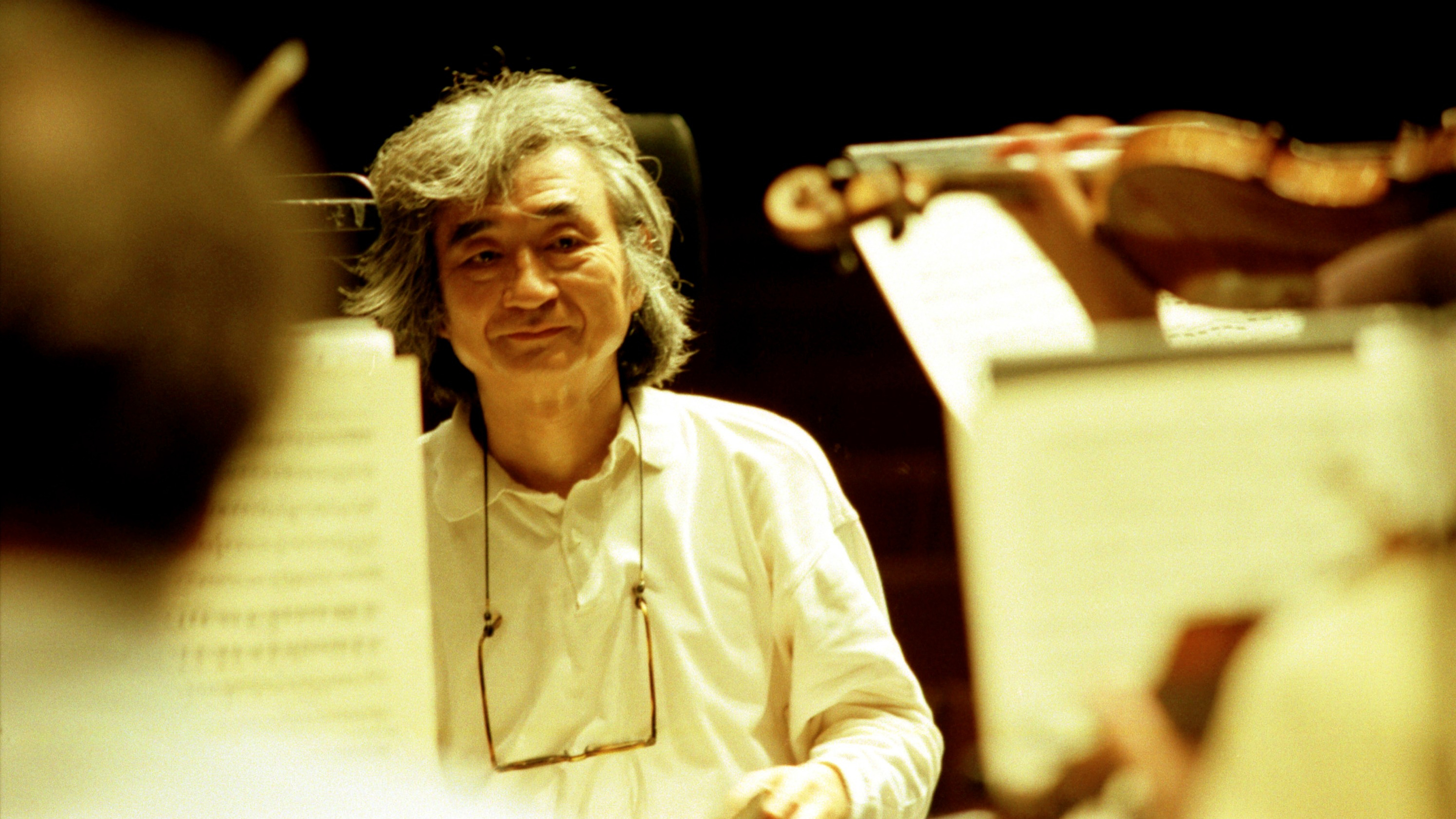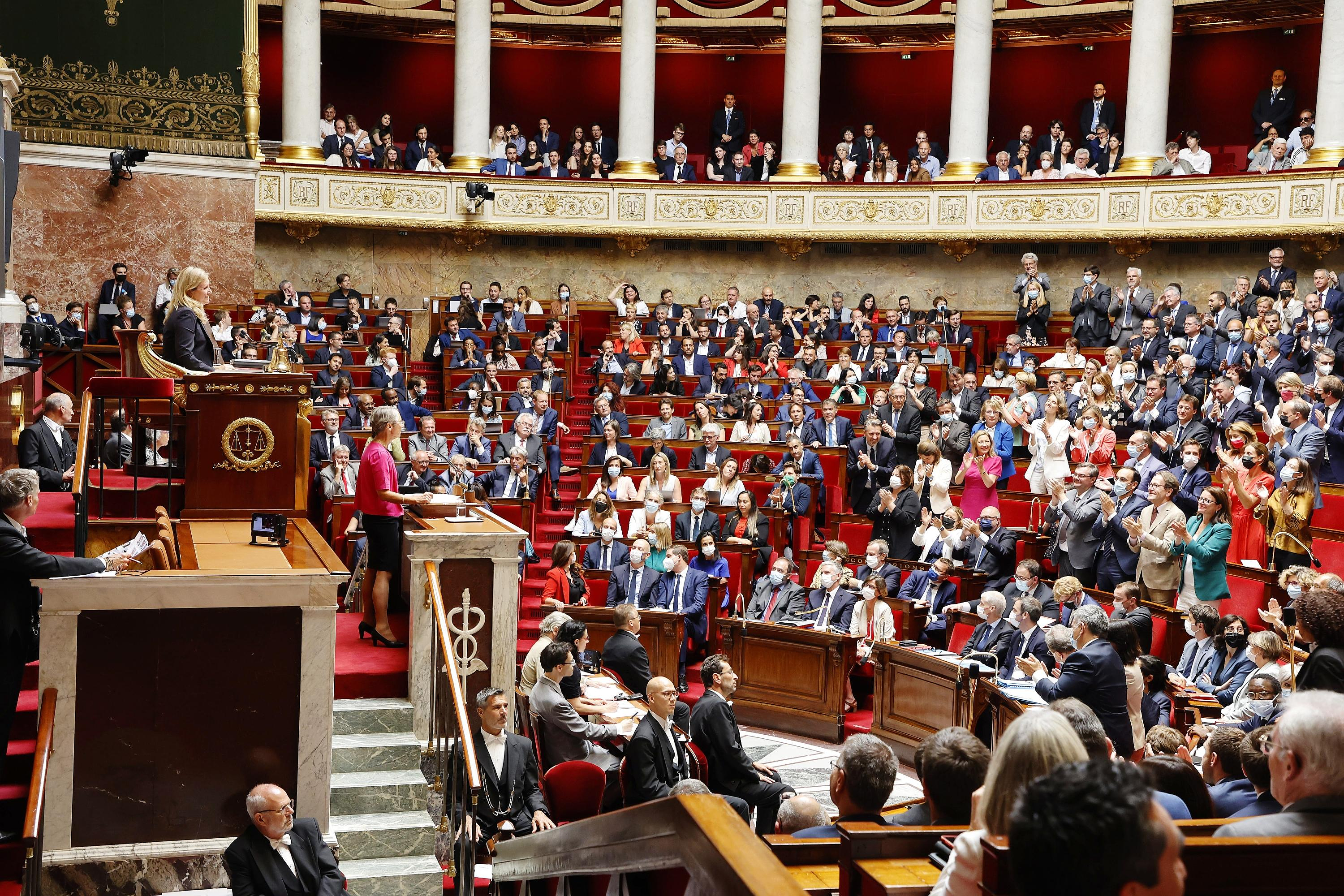With Seiji Ozawa, one of the most charismatic conductors of the 20th century has just passed away on Tuesday February 6 at his home in Tokyo. Even when his jet-black mop of hair had turned completely white, and his face resembled a wrinkled apple, it was still a fascinating sight to see him at the podium, dancing with a feline suppleness that made all the music he conducted a fascinating choreography. In recent years, however, he had had to move further and further away from the stage, handicapped by esophageal cancer and then by several back operations, without ever having lost his optimism and his smile. When he conducted, with or without a wand, since the day he forgot it at the hotel and realized that he felt very good with his bare hands, one was first struck by his incredible sense of direction. rhythm and its alchemy of instrumental colors. Two essential qualities for directing French music, in which he excelled to the highest degree: Berlioz, Debussy, Ravel found a kindred spirit in him, just like Messiaen and Dutilleux, who had no better servant. It is true that France is omnipresent in his journey.
Born in 1935 in China to Japanese parents, he studied in Tokyo under the guidance of the great Hideo Saito, this genius pedagogue who dedicated his life to building classical musical life in Japan. Saito had gone to study in Leipzig to penetrate the secrets of Bach's music, before returning to Tokyo where he brought in excellent European teachers: German for instruments, French for theory. This is why Ozawa will always designate musical notes in the French way (do, re, mi) and not in the Anglo-Saxon way (a, b, c): his music theory teacher, Mme Isnard, came from the Paris Conservatory ! It was also in the capital that he perfected his skills under the chef Eugène Bigot, whom he called “Monsieur Métronome”, so demanding was he regarding regularity.
Also read: Seiji Ozawa: why I listen to music
From this time, he took as a model the speed of deciphering of French musicians, capable of reading a complex score very quickly: Ozawa declared that he could not have created, in 1983, Messiaen's Saint-François d'Assise in as little time without the reading facilities of the Paris Opera Orchestra. France, again, would give him his first major reward, in 1959: first prize at the Besançon International Competition. The opportunity to meet Charles Munch, who will remain his first mentor and model, the second being Karajan, who was always extremely paternal towards him. Then conductor of the Boston Symphony Orchestra, Munch brought him to Tanglewood, the orchestra's summer residence. Ozawa seduces Americans without denying his French culture. He was quickly appointed musical director of the Toronto Symphony Orchestra, where one of his first recordings was devoted to Messiaen's Turangalîla-Symphonie, then of the San Francisco Symphony.
Also read: Seiji Ozawa, master of time
He was not yet 40 when he was named music director of the Boston Symphony Orchestra, one of the most prominent positions in American musical life. Strong symbol: he takes the head of the phalanx of his master Charles Munch, whose French tradition is still very anchored, even in the composition of the orchestra, since key positions are still occupied by French people, like Roger Voisin at the trumpet. Without denying the great classical repertoire, Ozawa, who was always more convincing in Ravel and Stravinsky than in Beethoven and Brahms, made Mahler one of his hobby horses and developed educational concerts on television.
After difficult first years, he became indisputable in Boston to the point of remaining in his post for more than thirty years, even if it meant that the last years were years too many. He himself admitted that the function of musical director was a very strong pressure, since it was he who was held responsible for the quality of the orchestra (at the end of his mandate, 75% of the musicians had been recruited by him).
The Boston musicians were perhaps jealous to see that they were no longer the first in Ozawa's heart, since the latter had founded the Saito Kinen Orchestra in 1984. An orchestra originally made up of former students of Saito, but which has since become an annual meeting place for the diaspora of Japanese musicians stationed around the world, without excluding some major figures from Western orchestras, such as the clarinetist of the Berlin Philharmonic or the timpanist of the Boston Symphony, Vic Firth, who had promised Ozawa to remain active as long as him: he was still playing timpani at 75!
With this strong gesture, Ozawa demonstrated his commitment to developing musical life in Japan. He, who had sometimes been criticized by his compatriots for pursuing a career abroad, but who had never spoken anything other than a very rough smattering of English, French and German, wanted to give his compatriots the benefit of experience acquired in the West. In 1992, the Saiton Kinen Orchestra would find its summer home in Mastumoto, in the Japanese Alps, where Ozawa founded his own festival. Soon, he also created the Mito Chamber Orchestra, the Opera Nomori company in Tokyo, as well as Ongaku Juku, a structure intended to introduce opera to children in China and Japan, and the International Music Academy in Switzerland , specializing in chamber music.
Also read Intrépide Seiji Ozawa
In this last phase of his career, the position of musical director of the Vienna Opera, which he held from 2002 to 2010, gives more the impression of a parenthesis: much loved by the Vienna Philharmonic since its beginnings in Salzburg , in 1969, he was not as naturally an opera conductor as a symphonic conductor, even if his appearances at the podium of the Paris Opera remain vivid memories. Like his electrifying concerts with the Orchester national de France. Also like a being who was not an intellectual, but radiated magnetism and kindness. Always full of energy, he had to cancel more and more concerts to treat esophageal cancer.

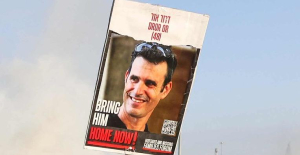 Who was Dror Or, the Israeli father who died as a hostage in the hands of Hamas?
Who was Dror Or, the Israeli father who died as a hostage in the hands of Hamas? “Pay in cash”: at his trial, Donald Trump faced with an embarrassing recording
“Pay in cash”: at his trial, Donald Trump faced with an embarrassing recording Italy: a grandmother accidentally serves a bottle filled with wine to a baby, he has an alcoholic coma
Italy: a grandmother accidentally serves a bottle filled with wine to a baby, he has an alcoholic coma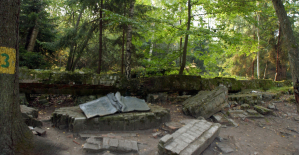 The mysterious skeletons of Hermann Göring's villa
The mysterious skeletons of Hermann Göring's villa Children born thanks to PMA do not have more cancers than others
Children born thanks to PMA do not have more cancers than others Breast cancer: less than one in two French women follow screening recommendations
Breast cancer: less than one in two French women follow screening recommendations “Dazzling” symptoms, 5,000 deaths per year, non-existent vaccine... What is Lassa fever, a case of which has been identified in Île-de-France?
“Dazzling” symptoms, 5,000 deaths per year, non-existent vaccine... What is Lassa fever, a case of which has been identified in Île-de-France? Sánchez cancels his agenda and considers resigning: "I need to stop and reflect"
Sánchez cancels his agenda and considers resigning: "I need to stop and reflect" Health carpooling, this source of savings which arouses the ire of patients and taxis
Health carpooling, this source of savings which arouses the ire of patients and taxis Tesla Model 3, MG4 and Dacia Spring.... With the end of the ecological bonus, these electric cars produced in China are seeing their sales fall
Tesla Model 3, MG4 and Dacia Spring.... With the end of the ecological bonus, these electric cars produced in China are seeing their sales fall For the 2024 Olympics, Airbnb commits to fighting prostitution in its accommodation
For the 2024 Olympics, Airbnb commits to fighting prostitution in its accommodation “Shrinkflation”: supermarkets obliged to alert their customers from July 1
“Shrinkflation”: supermarkets obliged to alert their customers from July 1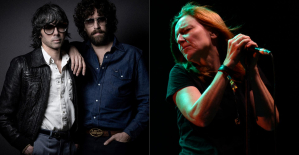 The electro of Justice and the echoes of Portishead
The electro of Justice and the echoes of Portishead 1924 Olympic Games: according to his daughter, the hero of Chariots of Fire was “not a bigot”
1924 Olympic Games: according to his daughter, the hero of Chariots of Fire was “not a bigot” The “German Brothel” in Yvelines: an uncertain future for the ruined residence
The “German Brothel” in Yvelines: an uncertain future for the ruined residence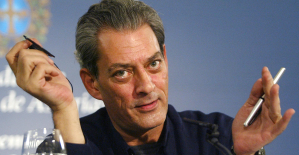 The eye of the INA: when Paul Auster visited Bernard Pivot
The eye of the INA: when Paul Auster visited Bernard Pivot Omoda 7, another Chinese car that could be manufactured in Spain
Omoda 7, another Chinese car that could be manufactured in Spain BYD chooses CA Auto Bank as financial partner in Spain
BYD chooses CA Auto Bank as financial partner in Spain Tesla and Baidu sign key agreement to boost development of autonomous driving
Tesla and Baidu sign key agreement to boost development of autonomous driving Skoda Kodiaq 2024: a 'beast' plug-in hybrid SUV
Skoda Kodiaq 2024: a 'beast' plug-in hybrid SUV The home mortgage firm rises 3.8% in February and the average interest moderates to 3.33%
The home mortgage firm rises 3.8% in February and the average interest moderates to 3.33% This is how housing prices have changed in Spain in the last decade
This is how housing prices have changed in Spain in the last decade The home mortgage firm drops 10% in January and interest soars to 3.46%
The home mortgage firm drops 10% in January and interest soars to 3.46% The jewel of the Rocío de Nagüeles urbanization: a dream villa in Marbella
The jewel of the Rocío de Nagüeles urbanization: a dream villa in Marbella Facing Jordan Bardella, the popularity match turns to Gabriel Attal’s advantage
Facing Jordan Bardella, the popularity match turns to Gabriel Attal’s advantage Europeans: a senior official on the National Rally list
Europeans: a senior official on the National Rally list Blockade of Sciences Po: the right denounces a “drift”, the government charges the rebels
Blockade of Sciences Po: the right denounces a “drift”, the government charges the rebels Even on a mission for NATO, the Charles-de-Gaulle remains under French control, Lecornu responds to Mélenchon
Even on a mission for NATO, the Charles-de-Gaulle remains under French control, Lecornu responds to Mélenchon These French cities that will boycott the World Cup in Qatar
These French cities that will boycott the World Cup in Qatar Monaco - Clermont: Minamino cornerstone, Fofana essential, the Clermont defense overwhelmed... The tops and the flops
Monaco - Clermont: Minamino cornerstone, Fofana essential, the Clermont defense overwhelmed... The tops and the flops Gymnastics: two gold medals for the Italian Manila Esposito during the European Championships
Gymnastics: two gold medals for the Italian Manila Esposito during the European Championships Champions Cup: in pain, Leinster beats Northampton and qualifies for the final
Champions Cup: in pain, Leinster beats Northampton and qualifies for the final Liga: Real Madrid crowned champion of Spain after FC Barcelona's defeat in Girona
Liga: Real Madrid crowned champion of Spain after FC Barcelona's defeat in Girona